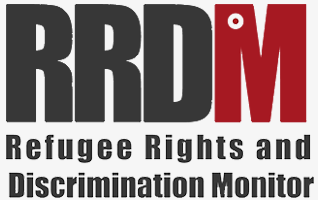Denmark set to keep anti-immigrant policy regardless of vote

BY| Aljazeera
Regardless of the outcome of the November 1 polls, Denmark is expected to maintain its restrictive immigration policies.
A week before the Danish general elections on November 1, the race seems as tight as ever, with polls showing the centre-left bloc neck and neck with the centre-right opposition.
A record-high number of voters have changed positions during the past weeks, and the new Moderates party is growing rapidly after campaigning to form a government across the traditional left-right divide in Danish politics.
Regardless of the outcome, however, it seems certain that Denmark is set to continue its controversial path as one of Europe’s most restrictive countries when it comes to immigration and asylum.
The Scandinavian country’s centre-right parties all agree that its restrictive migration policies are the baseline for Danish national politics.
Meanwhile, the governing Social Democratic party has adopted the right’s anti-immigration agenda to the extent that its asylum policies have inspired European far-right parties such as Alternative for Germany (AfD) in Germany and the Sweden Democrats in Sweden.
The remaining smaller parties of the centre-left, such as the Social Liberal Party and leftist Red-Green Alliance, officially oppose Denmark’s controversial policies on immigration, including the revoking the residency permits of Syrian refugees and the push to relocate asylum seekers from Denmark to centres in Rwanda.
If the centre-left coalition should gain a majority with the Social Democrats as the governing party, the chances of them backtracking on anti-immigration policies are slim to none, according to political analyst and commentator Lars Trier Mogensen.
“During this government, the centre-left parties have pretty much given up on demands for more accommodative immigration laws, and they will not be able to push that agenda after an election either,” he told Al Jazeera.
The Social Democrats largely won the previous election in 2019 by attracting voters from the far right, and the party’s logic now is that any relaxing of immigration laws can cost them the government, Mogensen said.
“The centre-left parties have largely accepted this and are instead trying to influence the Social Democrats on other policy areas such as climate goals or the educational system”, he added.




